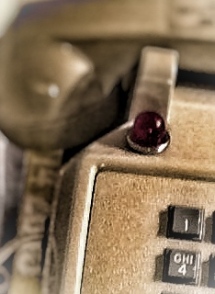
I was talking to a student today about medical futility and the ethical dilemmas that sometime crop up in caring for patients in the hospital. Sometimes patients are so sick that it appears there is no cure, no fix. It can be patient driven, a product of the patient’s environment, or progression of disease and complications for which there is no more treatment. Healthcare professionals are in the business of fixing people. When we feel like we can’t fix the reason why they are sick, we feel like WE have failed. It becomes a question of “ok, so what do we do now”. What do we do if the patient and/or family is not ready to make life-ending decisions? Continue to try treatments that are likely not going to work or might possibly have very poor outcomes?
Maybe.
Maybe the patient and family need more time. Maybe the surgeons, residents, and fellows need more time. Maybe the nurses and CNAs need more time. Maybe the social workers and palliative care workers need more time. Maybe the hundreds of people whom have cared for the patient over a period of months/years need more time.
More time for what?
To make sure that they have done all they could to try to save their patient? Or time to accept the inevitable?
Maybe both.
We have a hard one: a patient we have treated for a long time. We have become part of her family. What we have all feared is coming to fruition. In one sense, we are grateful that it seems to be a slow transition.
These things are hard to swallow in one gulp. It feels like we are trying to swallow an orange whole. We can feel the lumps in our throats and it’s just not going down. Smaller gulps over a little bit of time is easier. So we take the time to peel the orange and eat the individual slices. In this case, the orange is mealy and doesn’t taste good. But we know we have to eat it anyway.
This is the hard part of nursing. Not the 12 hour shifts. Not the fact that sometimes we don’t get a lunch or have time to use the restroom. Not the bodily fluids or attitude we sometimes get flung at us. It’s losing the battle.
“Eating the orange” with this patient is not going to be easy in any sense of the word… and time is precious. We want to stretch out the time, like placing our patient on hold on the telephone and asking her to wait…watching the light to make sure she’s still on hold until we are ready to say goodbye. We don’t want to say goodbye.
So we don’t.
When we see that light go out, we hope that she hung up on us because she got distracted…she’s watching the football game or screaming at the TV because the news is frustrating her…she’s working in the yard and we can hear her singing…she’s sitting in the sun petting her cat…she’s dancing with her husband and drinking her favorite beer…she’s no longer suffering and is free to be.
This is the ONLY solace we often have…knowing that the part that isn’t her body will be free. We just have to help get her, and the rest of her family (and us), through this part. We will keep “picking up the phone” and speaking with her…being present…moving with compassion as we always do…then placing her on hold again until she hangs up on us.
When the light no longer glows, we will know where she is.
Nothing is futile. There’s always something we can do. We may not be able to fix a person’s body…but we can nurture their spirits until they no longer need us.
Grief and gratitude at the same time. The paradoxes of life are evident on an oncology unit.
I wouldn’t want to be anywhere else.

Beautifully written my friend.
LikeLike